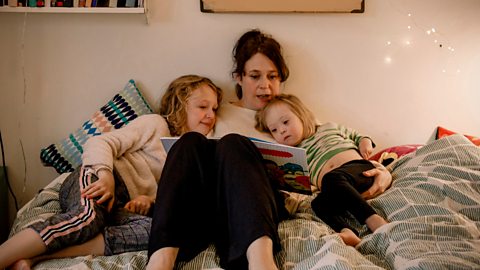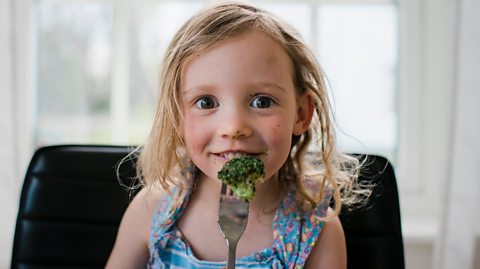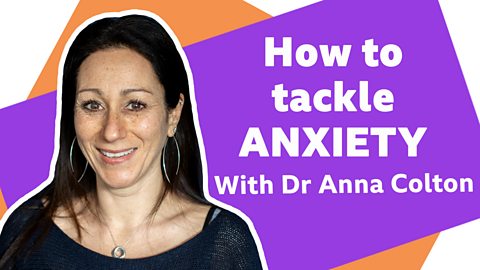Picture the scene: your child comes out of school and the teacher says theyâve behaved like the perfect child all day, but the moment you get home they have a complete meltdown. Your child screams, shouts, lashes out, sulks or generally acts in an unruly manner.
If that scene is familiar to you, youâre not alone. This type of behaviour is what some psychologists refer to as âafter-school restraint collapseâ and itâs not unusual. It happens because your child has been busy managing their emotions all day as they navigate the complexities of school life.
When they get home, thatâs their safe space to let it all out!
So, now you know what it is, what can you actually do about it? Parentsâ Toolkit has been speaking to educational and child psychologist Dr Anisa-Ree Moses, for some tips on how to support these outbursts of emotions after-school.
How to support your child's emotional outbursts
1. Ask for help if you think your child needs it
Dr Moses says your child might also be upset when they come out of school if there were any difficulties that day that werenât addressed, or thereâs something unresolved thatâs happened.
If your childâs behaviour after school changes or is different to whatâs usual for them, try and find out if there are things happening during the school day that are affecting them.
âThink about whether you need a home-school communication book, so that you know whether whatâs been happening in school could trigger what happens at home. Information from school can help parents know how to approach a situation and whether thereâs something that needs resolving.â
2. Let them have decompression time

Dr Moses suggests having a think about what your child needs when they come out of school.
"Do they need to go and run around the school playground a few times and let go for a bit before they walk home? Do they need movement or do they need a healthy snack? Or quiet time alone with no music or no chatting on the way home in the car or bus?"
It will be different for different kids, but Dr Moses suggests trying to be quiet on the walk or ride home.
"Connect with your child. Not by asking âhow was your day?â but through genuine emotional connection. You could say âIâm so happy to see you, Iâm glad we get to go home together, it made me happy coming out of school this wayâ. Being calm and using supportive words is important for your children."
She adds: "Include some downtime rather than moving straight on to homework or out to a club, so that your child can decompress. They might enjoy their clubs but still feel anxious, so build in downtime first and make their routine clear, visual and written down if they need that. You can also ask them what will help, for example drawing, reading a book or even just relaxing for a bit. Do it with them and help them to see they can do things to support themselves."
3. Listen to them and help them feel heard

"Be understanding of their emotions - help them feel listened to if they want to talk about whatâs gone on, or be angry."
"You could say âI can see youâre shouting. I can see you want to be really loud, maybe let's go to the park on the way homeâ. Validate how they feel rather than try and control it. If they are impolite in the moment, come back to that later â talking at that moment wonât help.â
âHelp them feel listened to and respected and make a genuine connection.â
Dr Moses says the after-school âmeltdownâ is an expression of emotion that often comes out physically. As parents you can recognise and label it so your child can see if for what it is.
âFor example, âI can see you are kicking the bin, I can see youâre clenched and red, I can hear youâre shouting and thatâs making me think youâre angry, so I want to help you. However, hereâs not the safest place to do that, letâs go to the park, etc.â"
âBuild their emotional vocabulary and link it to the emotion â then they can tell you what theyâre feeling. You can say things like âI want to help you. I can't do that when youâre screaming. Letâs take a deep breath, both of us.â Acknowledging it helps children to not feel alone.â
With older children, Dr Moses says itâs often more about them not wanting to talk or engage in any discussion about school.
âEspecially for those who see school and home as two completely separate things. Just encourage them to build their emotional vocabulary, and be interested in whatâs happening in general in their life.â
She adds: âQuestions like âhow was your day?â will get a grunt or âitâs fineâ. Think about what you are trying to find out. Can you remember an assignment they had or what they were going to be talking about with their friends? And connect by saying âIâm happy to see you and hope youâve had a good dayâ until they feel ready to come and have a conversation. Then offer yourself as being there, offer yourself as someone who wants to help and is interested in whatâs going on.
"Help them feel listened to and respected and make a genuine connection.â
4. Build in time for connection

Connection is a great way for your child to know theyâre loved and that youâre there for them, no matter what.
It could be snuggling up in bed, reading a book together, playing a quick game, or just having a chat.
Dr Moses suggests thinking about what your morning routine is like: âIs there anything you can build in there that can help them feel connected to you? I know this can be hard, I know how frustrating and annoying school runs can be! Let them know youâre looking forward to seeing them later, just for who they are, not for what theyâve achieved.â
She adds: âIf your child is finding separation difficult, can you give them a note or something of yours to have in school? For some children, knowing that Mum or Dad is a phone call away and it wonât be withheld from them helps them more.
"Also think about whether you have conversations about emotion at home. Itâs about helping your children with emotional literacy, building resilience and problem-solving skills, as well as building in transitioning â learning how to make things more predictable so that transitions are not as big and scary. Children are better able to manage their emotions if they know whatâs going to happen.â
5. Understand how hard school can be for some children

Dr Anisa-Ree Moses says that children can feel emotional, physical and mental exhaustion at the end of the school day. They have been trying to manage a mix of things like learning, social expectations, their own growing social awareness and all the feedback theyâre getting from teachers and peers.
"When they come out of that environment a pressure valve is released. If kids feel safe to express themselves, they will do so!"
The transition from school to home can also be challenging for some children: âSome kids may have difficulty separating from their parents. Itâs a relief when they see them, because their parent or carer represents a level of safety, but theyâre frustrated at the same time â the child wants them but is finding connection difficult at that moment. Itâs a positive reunion but itâs also really emotional and can be hard for some children to channel.â
Dr Moses adds that it can be particularly difficult for neurodivergent children who are coping with sensory sensitivities and the effort of containing a lot of emotions. When they come out of school they often canât hold it all in any longer.
For older children, she also says the transition home can be tricky too. They need space and time after school â they might not want to talk to you about it or will go to their room for a bit first.

More from ±«Óătv Bitesize Parents' ToolkitâŠ
Parents' Toolkit
Fun activities, real-life stories, wellbeing support and loads of helpful advice - we're here for you and your child.

Mental health first aid kit for parents: Who to ask and what to do
Worried that your child needs help with their mental health? Here's how you can access professional help and support your child while you wait.

Five tips for helping your kids to eat healthily all year round
Healthy eating hacks for parents from dietitian Priya Tew.

How to tackle anxiety with Dr Anna
Calming techniques to help parents and children manage their anxiety.

How can I talk to my kids about their emotions? - The Super Tutors
Natalie Costa, aka 'The Child Whisperer', explains how you can talk to your child about their feelings and help them manage their emotions.

How to manage your childâs online world without clashing
Children and teens spend lots of time online for school and leisure, which can be a worry for parents. Here's some advice on managing your childâs screen time.
